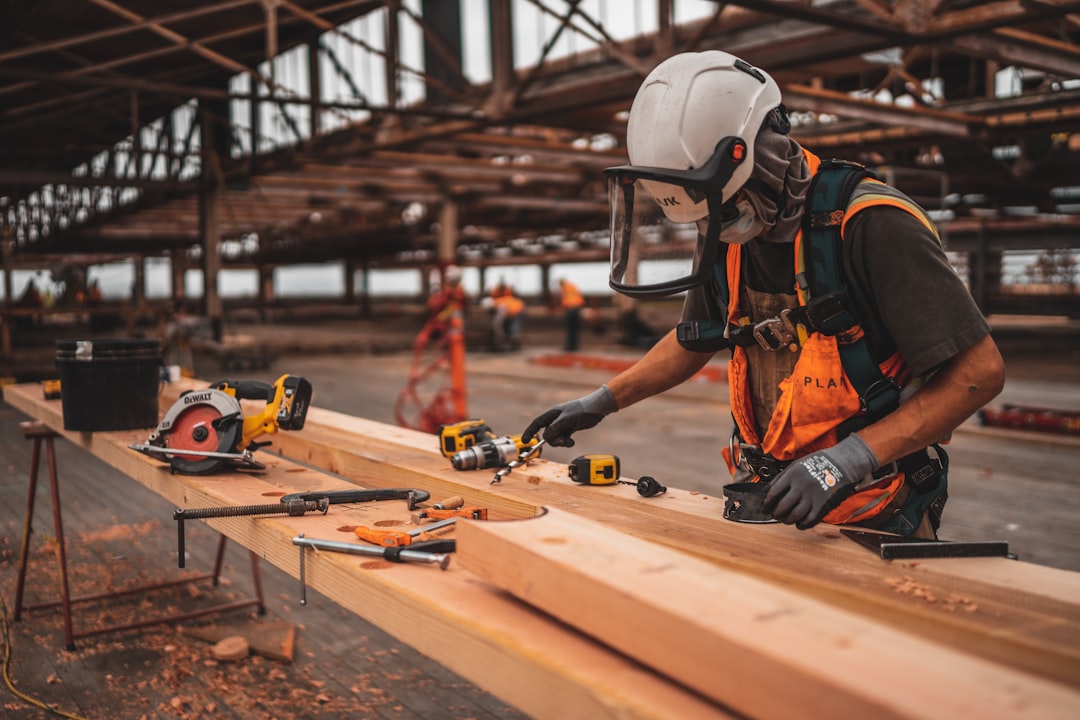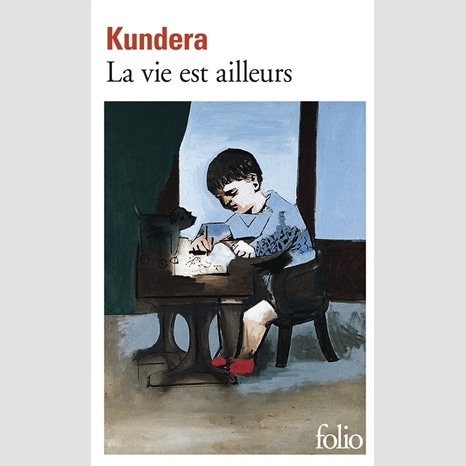One way to tell that your French is progressing is when you start understanding different shades of meaning.
Today, we’ll look at five word pairs that cause a lot of confusion in French learners.
S’en aller vs. aller
D’ailleurs vs. ailleurs vs. par ailleurs
Matériel vs. matériau
Parce que vs. à cause de
Se réveiller vs. se lever vs. se coucher
S’en aller vs. Aller
I often get the question: what does s’en aller mean, and is there a difference with just saying aller.
Aller means to go.
S’en aller means to go from somewhere, or to leave (partir). With s’en aller, there is either the meaning of leaving, or a sense of movement.
It’s common to say, je m’en vais en France l’année prochaine.
It would certainly be possible to say: je vais en France l’année prochaine.
By saying je m’en vais en France, the meaning is closer to: “I’m leaving for France.”
Let’s take a look at some examples with s’en aller
Je dois m’en aller
I have to leave
Je ne veux pas que tu t’en ailles tout de suite!
I don’t want you to leave right away!Va t’en!
Go away!Les nuages vont s’en aller et le soleil va revenir
The clouds will go away and the sun will come back
« Toi qui t’en vas »
You, who leaves
Here are some examples with only aller
Il faut que j’y aille
I've got to go
Je ne sais pas où je vais aller
I don't know where I'm going (will go)
“Où tu vas quand tu dors en marchant?”
Where you go when you are sleep walking?
👉 Je dois y aller and je dois m’en aller mean almost the same thing. But s’en aller gives a stronger sense of “leaving.”
D’ailleurs vs. ailleurs vs. par ailleurs
These words and expressions are often confusing.
Ailleurs just means elsewhere or somewhere else.
J’ai envie d’aller ailleurs
I feel like going somewhere else
The confusion comes with d’ailleurs and par ailleurs.
D’ailleurs means in fact or as a matter of fact, or by the way, and is viewed as a concession (you admit that new information is true.)
Par ailleurs is used in formal French to add new information, meaning something close in addition and adds new, unknown information. That is why it can translate easily to also.
Here are some examples
D’ailleurs, je crois qu’on devrait passer plus de temps en famille
In fact, I think we should spend more time together as a family
Est-ce qu’il faut que j’aille ailleurs?
Do I have to go somewhere else?
On n’arrive pas à arrêter la technologie, comme le progrès, d’ailleurs
Technology can't be stopped, and neither can progress, as a matter of fact
Voici d'ailleurs les activités que l'on présentera toute la journée au musée
By the way, these are the activities we'll be presenting all day at the museum
Par ailleurs, le stress vécu par les parents les rendrait moins disposés à répondre aux besoins de leurs enfants
In addition, the stress experienced by parents makes them less willing to meet their children's needs
Le premier ministre canadien Justin Trudeau a par ailleurs annoncé que la ville de Montréal accueillera
Canadian Prime Minister Justin Trudeau has also announced that Montreal will host the event
Il voit peu son frère, qui d’ailleurs ne s’en plaint pas
He doesn't see much of his brother, and he's not complaining
Il était médecin et par ailleurs pianiste
He was a doctor and also a pianist
Matériel vs. Matériaux

How would you translate the following?
I’m looking for new material to learn French.
“The idea was to highlight the environmental impact of the most used construction materials”
Material in French can translate in two words
Le matériel (plural: matériels), which can mean supply, medical equipment or some type of learning material.
Le matériau (plural: matériaux), means building material (but can also mean all the data and information that make up the substance of a document, research or text.)
So, you would typically say:
Je cherche du nouveau matériel en français
I’m looking for new material in French
L’idée était de mettre en valeur l’impact environmental des matériaux de construction les plus utilisés
“The idea was to highlight the environmental impact of the most used construction materials”
Parce que vs. à cause de
To explain the cause of something, parce que and à cause de are used.
Parce que is also used to answer the question pourquoi.
Parce que is used before a verb
À cause de is used before a noun
Study the following examples
J’ai faim parce que je n’ai pas mangé
I’m hungry because I haven’t eaten
Je vais être en retard à cause de mon rendez-vous
I will be late because I have a meeting (because of my meeting)
Pourquoi est-ce que tu n’es pas venu travailler? Parce que je n’en avais pas envie
Why didn't you come to work? Because I didn’t want to
Parce que j’ai réparé la machine, nous pouvons travailler aujourd’hui
Because I fixed the machine, we can work today.
Se réveiller / se lever / se coucher
This often comes up in conversation, so don’t make mistakes with it!
To wake up is se réveiller
To get up is se lever
To fall asleep is s’endormir
To go to bed is aller se coucher
Going back to sleep up is se rendormir
Consider these examples
Je me lève vers 7 heures
I get up around 7
Quand je me réveille durant la nuit, j’ai de la difficulté à me rendormir
When I wake up during the night, I have trouble going back to sleep
Je me couche après minuit (ou : minuit passé)
I go to bed/sleep past midnight
Je me couche à dix heures, mais je m’endors seulement vers 11 heures
I go to bed at ten o'clock, but I don't fall asleep until about eleven
Je viens de me lever
I just woke up (meaning: got up)
Exercice
Translate the following sentences in French, paying attention the the word(s) in italics.
He won't be able to have surgery because of his allergies.
I don't want to leave because I love my life here in Montreal.
The marathon was cancelled because of the heat wave.
Here or elsewhere, it's the same thing. We bring our problems with us!
The city of Vienna in Austria is (by the way) one of the few capitals in Europe. without a major housing crisis. (Use d’ailleurs or par ailleurs)
They are also committed to doing more for disadvantaged communities. (Use d’ailleurs or par ailleurs)
I go to bed at different times every day.
I get up early, but only on weekdays.
You woke me up!
The price of school supplies has gone up.
Granite is a natural material for your kitchen countertop.
I have to go soon.
I'm off!
Answers
Il ne pourra pas recevoir de chirurgie à cause de ses allergies.
Je ne veux pas m'en aller parce que j'aime ma vie ici à Montréal.
Le marathon a été annulé à cause de la canicule.
Ici ou ailleurs, c’est la même chose. On apporte nos problèmes avec nous!
La ville de Vienne en Autriche est d’ailleurs l’une des rares capitales d’Europe à ne pas connaître de crise majeure du logement.
Ils se sont par ailleurs engagés à en faire plus pour les communautés défavorisées.
Je me couche à des heures différentes chaque jour
Je me lève tôt, mais seulement en semaine
Tu m’as réveillé!
Le prix du matériel scolaire a augmenté (ou: des fournitures scolaires)
Le granit est un matériau naturel pour votre comptoir de cuisine
Il faut que je m’en aille bientôt
J’y vais!







Veuillez créer un enregistrement audio de cinq paires de mots déroutantes
La célèbre réplique de Clint Eastwood, « Go ahead, make my day », qui figure dans son film de 1983 Le retour de l’inspecteur Harry, a été traduite dans la version doublée en français par « Vas-y aller, fais ma plaisir ». Es-tu d’accord, surtout pour la première partie ? Il dit la réplique à 0:35 dans le clip YouTube.
https://youtu.be/snIfTY9VeCI?si=e-x5PdEYOpNF5trJ